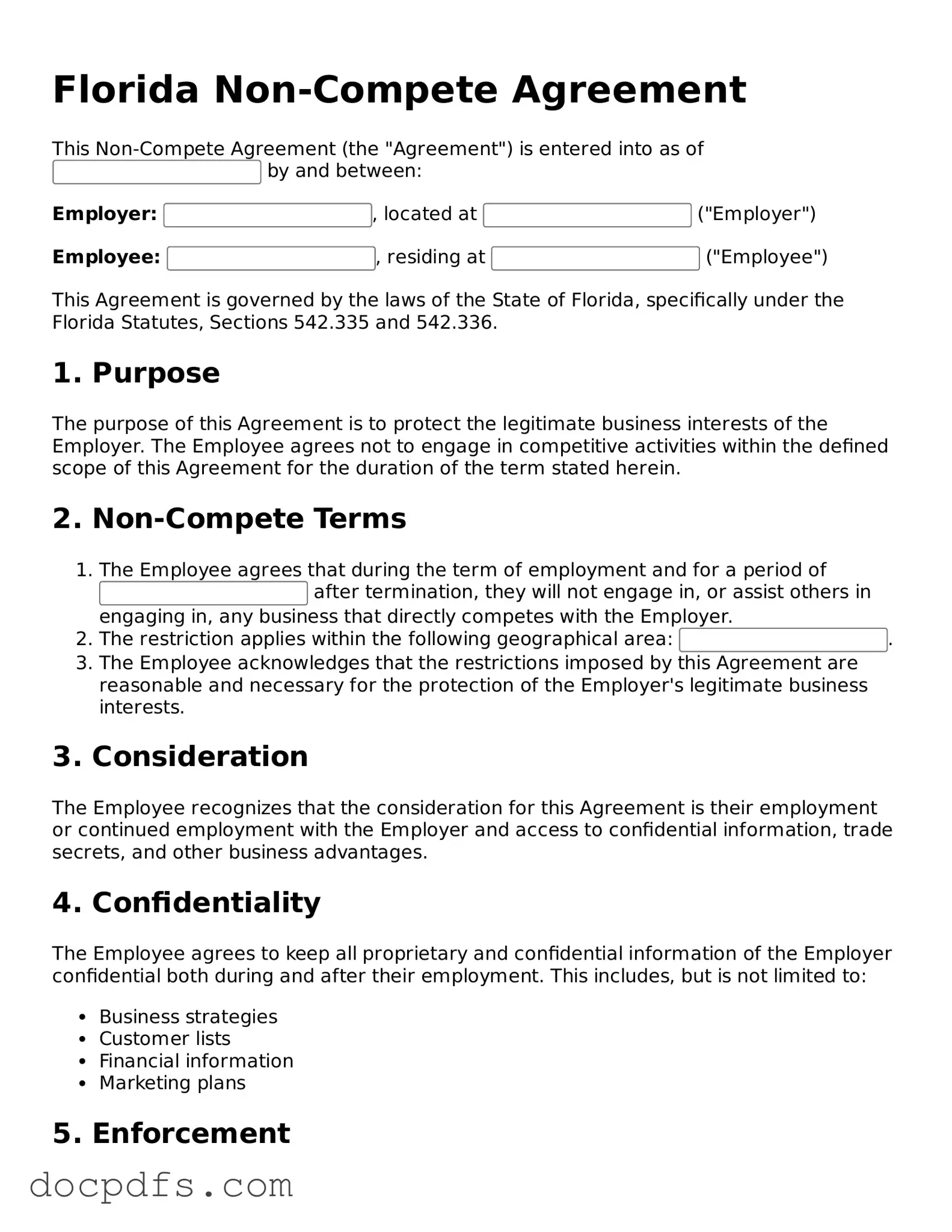What is a Florida Non-compete Agreement?
A Florida Non-compete Agreement is a legal document that restricts an employee from engaging in activities that compete with their employer after leaving the company. This agreement is designed to protect the employer's business interests, including trade secrets, client relationships, and proprietary information.
What are the key elements of a Non-compete Agreement in Florida?
In Florida, a Non-compete Agreement must include the following key elements:
-
Reasonable duration:
The agreement should specify a time period during which the restrictions apply. Typically, this ranges from six months to two years.
-
Geographic scope:
The agreement must define the geographical area where the restrictions are enforced. This area should be relevant to the business interests being protected.
-
Legitimate business interest:
The employer must demonstrate that the restrictions are necessary to protect a legitimate business interest, such as trade secrets or customer relationships.
Are Non-compete Agreements enforceable in Florida?
Yes, Non-compete Agreements can be enforceable in Florida, provided they meet specific legal requirements. Courts will evaluate the reasonableness of the agreement in terms of duration, geographic scope, and the necessity of protecting legitimate business interests. If the agreement is deemed overly restrictive, it may be invalidated.
How long can a Non-compete Agreement last in Florida?
The duration of a Non-compete Agreement in Florida should be reasonable. While there is no strict limit, agreements typically range from six months to two years. The specific duration should align with the nature of the business and the competitive landscape.
What happens if I violate a Non-compete Agreement?
If you violate a Non-compete Agreement, the employer may take legal action against you. This could include seeking an injunction to prevent you from working for a competitor or claiming damages for any losses incurred due to the violation. It is advisable to review the terms of the agreement carefully to understand the potential consequences.
Can I negotiate the terms of a Non-compete Agreement?
Yes, you can negotiate the terms of a Non-compete Agreement before signing. It is important to discuss any concerns you have regarding the duration, geographic scope, or specific restrictions. Employers may be willing to make adjustments to ensure the agreement is fair and reasonable for both parties.
Do I need a lawyer to create a Non-compete Agreement?
While it is not legally required to hire a lawyer to create a Non-compete Agreement, it is highly advisable. An attorney can help ensure that the agreement complies with Florida law and adequately protects your interests. They can also assist in negotiating terms that are fair and reasonable.
What should I do if I am presented with a Non-compete Agreement?
If you are presented with a Non-compete Agreement, take the time to read it carefully. Consider seeking legal advice to understand your rights and obligations. Ask questions about any terms that are unclear or concerning. It is important to fully understand the implications before signing.
Can a Non-compete Agreement be terminated?
Yes, a Non-compete Agreement can be terminated under certain circumstances. This may occur if both parties agree to end the agreement, if the employer waives the restrictions, or if the agreement is deemed unenforceable by a court. Always consult legal counsel to explore your options for termination.

